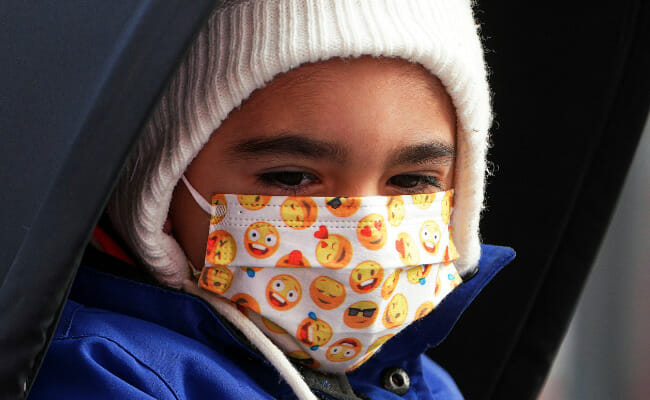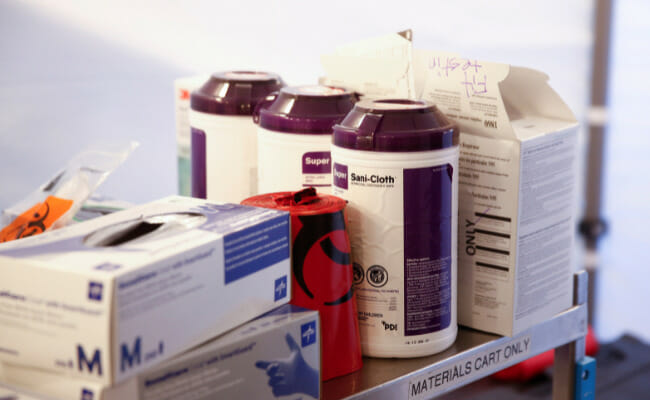COVID, RSV and flu this US winter: Why health experts are worried
U.S. doctors are warning that a surge in respiratory syncytial virus (RSV) coincides with an increase in COVID transmission and an earlier-than-normal flu season, raising the specter of a “tripledemic” of respiratory illness this winter.
In particular, RSV infections among young children are reportedly filling some U.S. hospitals to capacity.
“We are already seeing patients testing positive for more than one virus,” said a statement in a statement by pediatrician Dr. Ira Wardono of Providence Cedars-Sinai Tarzana Medical Center in Tarzana, California.
Who is at risk?

A child rides in a stroller while wearing a mask in Times Square during the coronavirus disease (COVID-19) pandemic in the Manhattan borough of New York City, New York, U.S., December 15, 2021. REUTERS/Carlo Allegri/File Photo
Infants are most at risk from RSV because they often cannot cough up the secretions caused by the virus and may need airway suctioning or intravenous fluids. Some may need extra oxygen. Older children and most adults typically experience mild, cold-like symptoms.
On average, RSV leads to 58,000 hospitalizations among children under age 5 and 177,000 hospitalizations among adults age 65 and older each year, according to the U.S. Centers for Disease Control and Prevention.
The CDC said RSV deaths are rare in U.S. children, but 14,000 adults die annually, with older or immunocompromised individuals at the greatest risk.
What can prevent RSV?

Medical supplies are seen in one of the tents set up for drive-through clinic testing for coronavirus, flu and RSV, currently by appointment for employees at UW Medical Center Northwest in Seattle, Washington, U.S. March 9, 2020. REUTERS/Lindsey Wasson/File Photo
Infection with RSV can be prevented in the same way one would ward off any virus: staying away from people who are sick, ensuring the best possible ventilation when you are indoors, wearing a high-quality mask, and keeping your hands as clean as possible, said Dr. Jay Varma, Chief Medical Adviser at Kroll.com and Director of the Weill Cornell Center for Pandemic Prevention and Response.
High-risk infants can receive preventive treatment with monthly doses of Synagis (palivizumab) from Swedish drugmaker Orphan Biovitrum. AstraZeneca Plc and Sanofi SA are hoping for U.S. and European approval of Beyfortus (nirsevimab) for preventing RSV infections in newborns and infants.
There is no vaccine against RSV, although Pfizer Inc is developing RSVpreF for adults. In the meantime, it is important “for everyone to get up to date on their COVID and flu vaccines,” Varma said.
What is causing the surge?

A man wearing a protective face mask sleeps on a subway train in New York City, U.S., May 6, 2022. REUTERS/Shannon Stapleton/File Photo
Varma said that part of the increase in RSV cases is due to the relaxation of COVID precautions, such as masking and social distancing, which reduced RSV and flu rates during the pandemic.
RSV rates were unusually low in the fall/winter of 2020-2021 but increased dramatically starting in Spring 2021 and have spiked since late August. The CDC says it cannot yet predict when the previous seasonal patterns will return.

